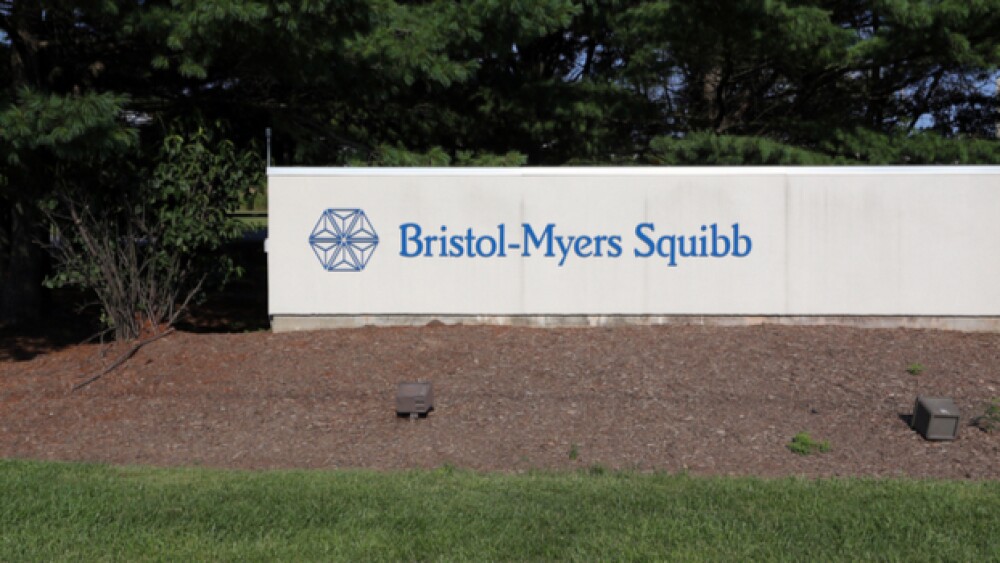On Friday, March 8, Bristol-Myers Squibb executives met with sell-side analysts to sell its $74 billion Celgene buyout.
Katherine Welles / Shutterstock.com
On Friday, March 8, Bristol-Myers Squibb executives met with sell-side analysts to sell its $74 billion Celgene buyout.
Bristol-Myers Squibb announced its bid to acquire Celgene on January 3, 2019. However, the deal hit a snag. One of its biggest shareholders, Wellington Management Company LLP, has objected to the acquisition. Wellington owns about an 8 percent stake in Bristol-Myers. Another BMS shareholder, Starboard Value, also opposes the deal. Starboard has about a 1-percent ownership share. Starboard, in an open letter, called it “poorly conceived and ill-advised.” Another group, Dodge & Cox, who opposes the deal, has a 2-percent stake.
The meeting with analysts is yet another effort BMS is making to sell the deal. In an open letter to stockholders, Bristol-Myers outlined the advantages of the deal, citing four specific points. They included growing a stronger commercial presence in the company’s key disease franchises, launching “exciting new medicines,” including six in the near future, advancing a significantly enhanced early-stage pipeline, and integrating a range of R&D modalities to strengthen the pipeline.
Recently, Bristol-Myers Squibb and Celgene filed with the Securities and Exchange Commission strongly urging shareholders to submit their proxy votes as quickly as possible whether they plan to attend the April 12, 2019 Special Meeting or not. The meeting is when the official vote on whether Bristol-Myers Squibb will buy Celgene will take place.
Under the terms of the deal, Celgene shareholders will receive 1.0 Bristol-Myers Squibb share and $50 in cash for each share of Celgene. Celgene shareholders will also receive one tradeable Contingent Value Right (CVR) for each share of Celgene. This entitles the holder to receive payment when Celgene hits specific future regulatory milestones. The total equity value of the deal is about $74 million.
BMS’s chief executive officer, Giovanni Caforio, told Bloomberg TV that he’s “speaking to shareholders every day,” and “my focus right now is getting the vote, because I really believe in the deal.”
Wellington says BMS shareholders have to accept too much risk. They also disagree with the terms offered to Celgene stockholders. Wellington also argues that the deal is likely to be more difficult than BMS claims. Thirdly, the investment firm argues that “alternative paths to create value” for BMS shareholders could be more attractive, although they have not publicly stated what those paths might be.
Another BMS shareholder, Starboard Value, also opposes the deal. They are concerned about Celgene’s expiring patents and that BMS has not accounted for projected Revlimid revenue declines of 90 percent by 2026 as the result of patent cliffs.
In a note to clients, Tim Anderson of Wolfe Research, who was at the meeting with analysts, wrote, “While not stated directly, the intent was clear: to drum up support for the proposed Celgene acquisition given some recent, high-profile, dissenting shareholder opinions. There continues to be uneasiness about the merits of the transaction and what the combined company will be capable of delivering to shareholders.”
In an infographic accompanying the letter to shareholders last week, BMS and Celgene further expanded on the advantages of the deal. They note the merged companies will have 10 Phase III assets, six near-term product launches, and a “robust early- and mid-stage pipeline” that includes 21 immuno-oncology and solid tumor products, 10 oncology-hematology products, 10 immunology and inflammation products, and nine products for cardiovascular and fibrotic diseases.
Its franchises include the top, #1 in oncology led by Opdivo, Yervoy, Revlimid and Pomalyst. It will also have the top 5 in immunology and inflammation led by Orencia and Otezla, and another top spot in cardiovascular diseases led by Eliquis.
Mark J. Alles, Celgene’s chairman and chief executive officer, stated in the open letter, “Combining with Bristol-Myers Squibb, we are delivering immediate and substantial value to Celgene shareholders and providing them meaningful participation in the long-term growth opportunities created by the combined company.”
Barclays analyst Geoff Meacham, in a note to investors after Friday’s meeting, says BMS had an “overall positive message,” adding, “The spread is likely to narrow as it nears and as Bristol continues to publicly reinforce its conviction in the proposed acquisition.”





